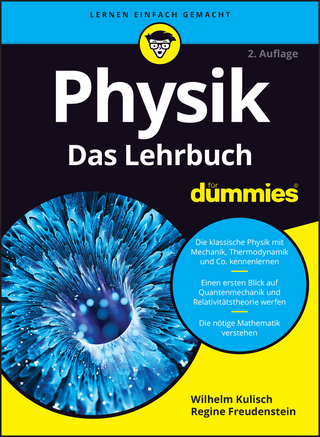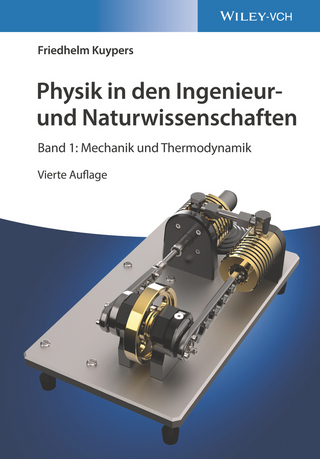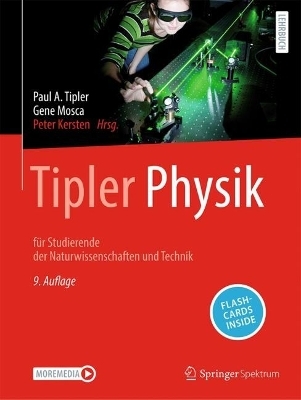
Selective Photonic Disinfection
Morgan & Claypool Publishers (Verlag)
978-1-68174-911-2 (ISBN)
- Titel z.Zt. nicht lieferbar
- Versandkostenfrei innerhalb Deutschlands
- Auch auf Rechnung
- Verfügbarkeit in der Filiale vor Ort prüfen
- Artikel merken
Pathogens such as viruses and bacteria are among the greatest threats to human health worldwide. In today's era of population growth and international travel, new technologies are desperately needed to combat the spread of known and emerging pathogens.
This book presents a new concept for pathogen inactivation called selective photonic disinfection (SEPHODIS). The SEPHODIS technology inactivates pathogens by mechanical means, a total paradigm shift from traditional chemical and physical methods. The unique strength of SEPHODIS resides in its capability to inactivate pathogens while preserving desirable materials such as human cells and proteins. The technology also avoids the need to use chemicals, drastically reducing the risk of side effects. These properties make SEPHODIS ideal for important biomedical applications such as safeguarding blood products and therapeutics against pathogens, as well as producing effective and safe vaccines to combat infectious disease.
Written in a style that is both technically informative and easy to comprehend for the layman reader, this book illustrates the story of SEPHODIS from its initial discovery and bench studies to its real-world applications.
Shaw-Wei David Tsen, M.D., PhD received his Doctor of Medicine and Doctor of Philosophy in Molecular Cell Biology from Washington University School of Medicine (Saint Louis, Missouri). He is a postdoctoral research associate at the department of Radiology, Washington University School of Medicine in Saint Louis, Missouri. He has over 10 years of experience in laser research, virology research, and immunology research, with particular emphasis on pathogen inactivation, transfusion safety, and vaccine immunology. In 2007, he co-developed a novel ultrashort pulsed laser technology for pathogen inactivation and demonstrated its application toward pathogen reduction of human blood products and influenza vaccine production. One of his primary research goals is to establish new technologies to combat the spread of emerging infectious diseases worldwide. Kong-Thon Tsen, PhD received his PhD degree from Purdue University (West Lafayette, Indiana). He is currently a Professor in the Department of Physics and the Center for Biophysics at Arizona State University (Tempe, Arizona). His research interest focuses on the interaction of light with solid state and biological systems, in particular on the use of ultrafast laser sources to elucidate novel electron transport phenomena, dynamical properties of lattice vibrations in low-dimensional and nanostructure semiconductors, as well as microscopic mechanisms in biological systems such as viruses, bacteria, and human cells. He has more than 200 refereed publications and 7 review book chapters, and has edited 4 books in the area of ultrafast phenomena in semiconductors and nanophotonics. Books edited are: (1) Ultrafast Phenomena in Semiconductors published by Springer-Verlag (New York, 2001). (2) Ultrafast Physical Processes in Semiconductors, published by Academic Press as the book Volume #67 in the series - Semiconductors and Semimetals, edited by R.K. Willardson and E.R. Weber (New York, 2001). (3) Ultrafast Dynamical Processes in Semiconductors, published as the book Volume #92 in the series - Topics in Applied Physics, by Springer-Verlag (Heidelberg, 2004). (4) Non-equilibrium Dynamics of Semiconductors and Nanostructures, published by CRC press Inc. (New York, 2005). He co-developed a novel ultrashort pulsed laser technology for pathogen inactivation in 2007.
Introduction
Mechanism of SEPHODIS
Pathogen inactivation using SEPHODIS
Real-world applications of SEPHODIS
Concluding remarks and future perspective
| Erscheinungsdatum | 13.03.2018 |
|---|---|
| Reihe/Serie | IOP Concise Physics |
| Verlagsort | San Rafael |
| Sprache | englisch |
| Maße | 178 x 254 mm |
| Gewicht | 825 g |
| Themenwelt | Naturwissenschaften ► Physik / Astronomie ► Allgemeines / Lexika |
| Naturwissenschaften ► Physik / Astronomie ► Optik | |
| Technik | |
| ISBN-10 | 1-68174-911-4 / 1681749114 |
| ISBN-13 | 978-1-68174-911-2 / 9781681749112 |
| Zustand | Neuware |
| Haben Sie eine Frage zum Produkt? |
aus dem Bereich


